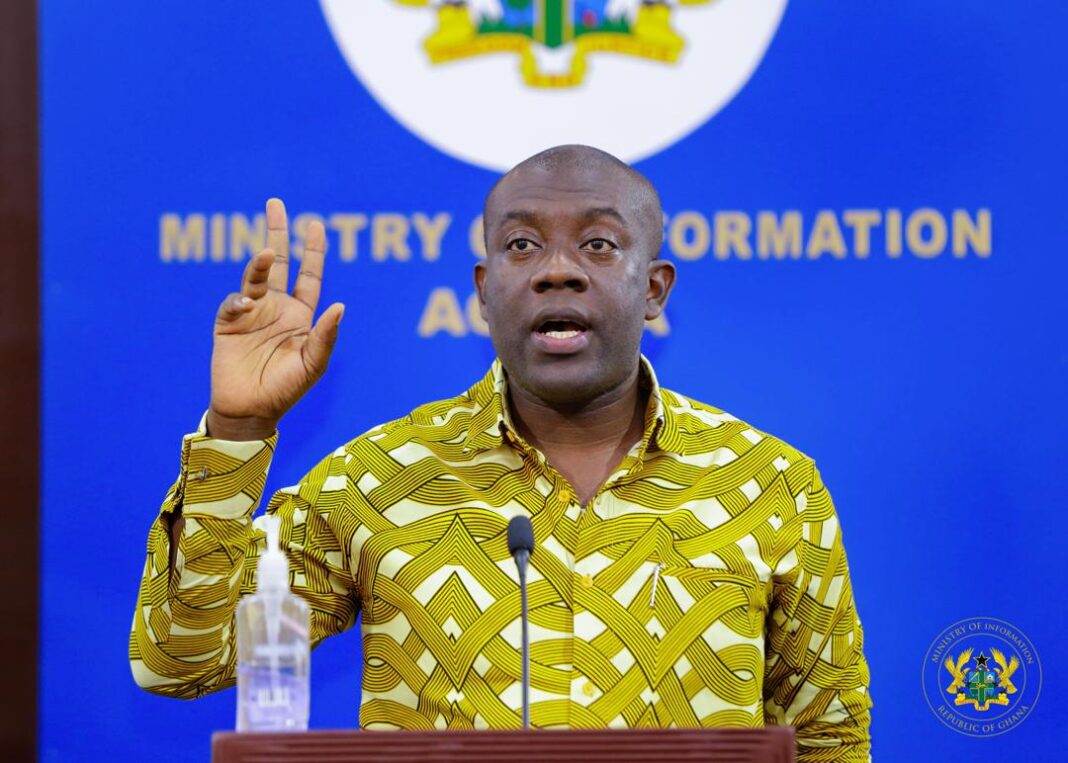The 2023 Budget and economic policy statement of the government of Ghana was almost all about the economy and this was understandable. With the country’s economy in the throes of a stumble and an International Monetary Fund (IMF) negotiation backgrounding the upheaval, Ghana’s Finance Minister, Ken Ofori-Atta, had his budget’s focus cut out for him when he went to Parliament to present it on the 24th of November, 2022.

As a result of the somewhat special focus on the economy, other important issues not directly related to the economy were crowded into the background. Among these were media development issues.
Even so, for those on the lookout for what provisions the 2023 draft budget statement would make for media development, there was a jolt when the finance minister promised that the broadcasting bill would be laid before Parliament in 2023.
Under normal circumstance, this promise should elicit a sigh of relief from press freedom and media development advocates and activists – finally, the broadcasting Bill will enter into motion towards becoming a law. However, it is not difficult to imagine that many activists have since probably looked the government askance and asked sarcastically, ‘really?’
Lack of faith in the government’s promise to chart the broadcasting Bill on the path towards becoming a law is totally justified. The Bill has strangely remained trapped in inaction since it was drafted in 2019. And in all this while, the government has somehow managed to lay promise upon promise that it will lay it before Parliament without doing so.
Government’s promise
The government’s lip service with the broadcasting Bill has naturally led to an erosion of faith in its commitment to passing the Bill into law among many who desire to see the Bill passed into law. With government facing an IMF programme and therefore a foreseeable future of tough economic tests, it is easy to be less hopeful that the promise to lay the broadcasting Bill before Parliament in 2023 will indeed happen since government’s attention will be elsewhere.
Even so, according to Finance Minister, Ken Ofori-Atta, the Bill will be laid before Parliament by the Ministry of Information, in collaboration with the Right to Information Commission.
The Minister was not clear on the exact month in which this would happen though.
Purpose of the Bill
The 2019 drafting of the Broadcasting Bill was in response to public clamour for a law that would regulate the broadcasting space in Ghana. The country’s airwaves, though very vibrant, have also been under encroachment from unprofessional interests, the most notorious being fake miracle workers and charlatan voodoo priests who pimp superstition and capitalize on the gullibility of the unsuspecting to scam them.
Then there are those who inflict ignorance and misinformation on the listening and/or watching public through these same airwaves.
Not only will the resultant law, if passed, make nefarious activities like ritual money advertisement on TV and radio illegal, it will also sanitise broadcasting, especially in local languages, which has often been a source of worry for experts and activists due to its tendency to abuse broadcasting ethics.
However, following its drafting, out of collaborative effort between the Information Ministry and other stakeholders, in 2019, the Bill has somehow not been laid before Parliament.
Delays
The government has been claiming that the delay is due to its decision to hasten slowly in order not to create problems for press freedom in its attempt to enhance it.
In 2021, after two teenagers in Kasoa, a town in the Central Region of Ghana, murdered a child for ritual money and later confessed that they had been told to provide human body parts by a voodoo priest who advertised on TV, there was public outcry and clarion demand for the passage of the broadcasting Bill into law.
To this, Ghana’s Minister for Information, Kojo Oppong Nkrumah, responded that the government had been hastening slowly the passage of the Bill to ensure that in its attempt to consolidate press freedom, it does not create a ruse for the government to rather use the broadcasting law to stifle the same freedom.
“We in government or the Ministry of Information responsible for information sector policy formulation agree that there is the need to pass the broadcasting law. I and my directors and technocrats have spent about a year working on it and engaging with stakeholders including the Ghana Independent Broadcasters Association (GIBA), etc but doing it tactfully.
“We are being tactful because media freedoms and freedoms of expression are rights that are given to us by the constitution and which right even though can be effected by law must be done carefully in a manner that we don’t create a ruse for government to use it as an opportunity to stifle those freedoms.”
However, this supposed tact by the government has increasingly been appearing to be a deliberate tiptoe around the need to lay the Bill before Parliament for many so that rather than see the tact as tact, many activists have come to view it as lack of political will.
In 2023, the government’s faithfulness to its own promise in regard to the laying of the Bill before Parliament will be under watch. The recommendation is that it should honour its own promise this time round.
Subsidiary legislation on RTI law
Meanwhile, the budget also promised that the government will lay before Parliament, a subsidiary legislation on the right to information (RTI) Act. Like the Broadcasting Bill, the subsidiary legislation will also be laid before Parliament by the Ministry of Information.
The subsidiary legislation is expected to detail rules and regulations to provide for technical or procedural details necessary for the implementation of an RTI law.





